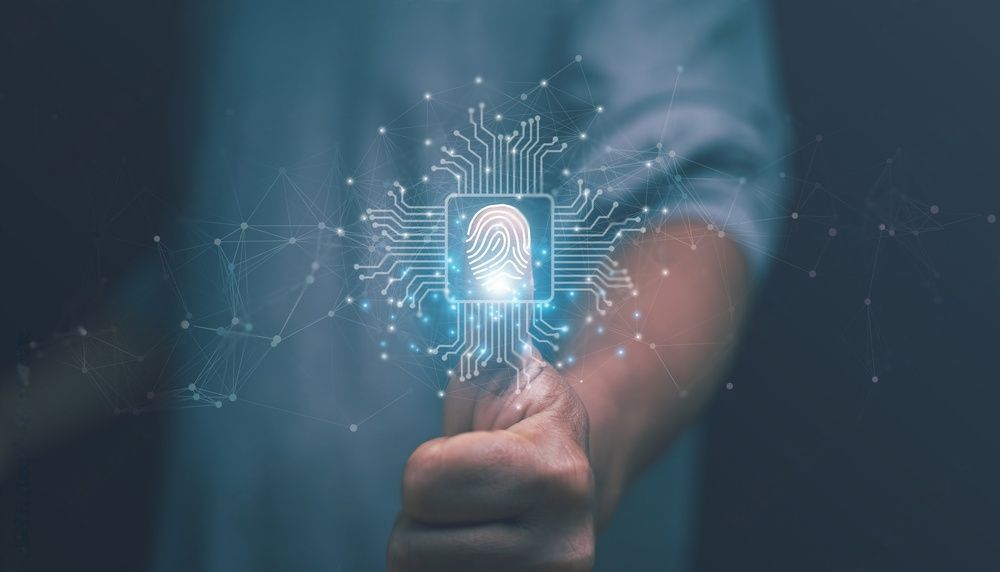Unraveling Mysteries: A Day in the Life of a Private Investigator
Introduction
The world of a private investigator is one shrouded in intrigue, secrecy, and the relentless pursuit of truth. As we delve into the realms of mystery and unravel the complexities of the job, we invite you to step into the shoes of a professional tasked with uncovering the concealed and solving the unsolvable. “Unraveling Mysteries: A Day in the Life of a Private Investigator ” is an exploration of the daily adventures, challenges, and triumphs of those who dedicate their lives to solving puzzles that often lie hidden in the shadows.
In this article, we will navigate through the multifaceted role of a private investigator, shedding light on the responsibilities that range from discreet surveillance to meticulous information gathering. From the crack of dawn to the closing moments of the day, a private investigator’s life is a tapestry woven with threads of analysis, intuition, and relentless pursuit of justice.
Join us on this captivating journey as we follow a private investigator through the twists and turns of a typical day, uncovering the techniques, tools, and tenacity that define their profession. As we peer behind the curtain of secrecy, we will also explore the challenges they face, the legal and ethical considerations that guide their actions, and the moments of triumph that make the job not just a profession but a calling.
So, fasten your seatbelts as we embark on “Unraveling Mysteries: A Day in the Life of a Private Investigator,” where every day brings a new puzzle, and every solution is a step closer to revealing the truth.
Role of a Private Investigator
A private investigator is a professional hired to carry out investigative, surveillance, and research work for individuals, businesses, or legal entities. Private investigators are often hired to gather information, verify facts, and uncover details that may be relevant to legal, personal, or business matters. They operate in a diverse range of fields and may specialize in areas such as criminal defense, corporate investigations, or personal background checks.
Key Responsibilities:
1. Surveillance:
- Definition: Private investigators conduct surveillance to monitor the activities and behavior of individuals. This may involve observing subjects in various settings to gather evidence or validate information.
- Techniques and Technologies: PIs use a variety of tools, including hidden cameras, GPS trackers, and other surveillance equipment.
2. Information Gathering:
- Open Source Intelligence (OSINT): PIs collect information from publicly available sources, such as online databases, social media, and public records.
- Covert Strategies: In addition to open-source information, private investigators may employ covert methods to gather data discreetly.
3. Background Checks:
- Employment History Verification: Verifying the accuracy of an individual’s work history and qualifications.
- Criminal Record Checks: Investigating a person’s criminal background to uncover any potential legal issues.
4. Legal Documentation:
- Report Writing: Private investigators document their findings in detailed reports, often including photographic or video evidence.
- Admissibility in Legal Proceedings: PIs may be required to testify in court and must ensure that their documentation adheres to legal standards.
5. Collaboration with Legal Professionals:
- Working with Attorneys: Private investigators often collaborate with legal professionals, providing them with the necessary information and evidence for legal cases.
- Testifying in Court: PIs may be called upon to testify as expert witnesses in court proceedings.
Significance in Solving Mysteries:
6. Case Solving Approach:
- Analytical Thinking: Private investigators employ analytical thinking and problem-solving skills to piece together information and solve complex cases.
- Intuition and Deduction: Intuitive skills help PIs make informed decisions and predictions based on the information gathered.
7. Contributions to Law Enforcement:
- Supporting Police Investigations: Private investigators may assist law enforcement agencies by providing additional information or conducting parallel investigations.
Client Relations and Communication Skills:
8. Interviewing Witnesses:
- Effective Questioning Techniques: PIs conduct interviews to gather information from witnesses or individuals relevant to a case.
- Building Trust with Informants: Establishing rapport with sources is crucial for obtaining accurate and reliable information.
9. Client Confidentiality:
- Ethical Handling of Sensitive Information: PIs must adhere to strict ethical standards, including maintaining client confidentiality and respecting privacy.
Adaptability and Problem-Solving:
10. Handling Unexpected Challenges:
- Changing Scenarios During Surveillance: Private investigators must adapt quickly to changing circumstances during surveillance operations.
- Adapting to New Information: PIs continuously reassess and adjust their investigative strategies based on new information.
11. Critical Thinking:
- Quick Decision-Making: PIs often make rapid decisions based on their assessment of situations, requiring quick and critical thinking.
- Problem-Solving in Time-Sensitive Situations: The ability to solve problems efficiently is crucial, especially in time-sensitive cases.
Utilization of Technology:
12. Surveillance Equipment:
- GPS Tracking Devices: Used for tracking the movement of individuals or vehicles.
- Hidden Cameras and Recording Devices: Employed to discreetly capture visual and audio evidence.
13. Data Analysis Tools:
- Digital Forensics: PIs may use digital forensics tools to analyze electronic data for investigative purposes.
- Computer-Aided Investigations: Technology is utilized to enhance efficiency in data processing and analysis.
Ongoing Professional Development:
14. Continuing Education:
- Training Programs and Workshops: Private investigators engage in continuous learning to stay updated on the latest investigative techniques, legal changes, and technology advancements.
In essence, a private investigator serves as a crucial link in the pursuit of truth, often operating in the shadows to bring clarity to complex situations. The dynamic and challenging nature of their role requires a combination of skills, including legal acumen, technological proficiency, and a keen understanding of human behavior. Private investigators play an integral role in various fields, contributing to the resolution of legal cases, the protection of businesses, and the well-being of individuals seeking answers to pressing questions.
A Day in the Life of a Private Investigator

A day in the life of a private investigator is a dynamic journey marked by surveillance, information gathering, and strategic analysis. The routine varies depending on the nature of the cases being handled, but the following provides a general overview of what a typical day might entail for a private investigator:
Morning Routine:
- Case Review and Planning:
- Private investigators often start their day by reviewing ongoing cases and planning their activities. This may involve going over case files, notes, and any new information received.
- Briefing with Team (if applicable):
- In cases involving a team of investigators, a morning briefing ensures that everyone is on the same page. The team discusses strategies, updates, and assigns tasks for the day.
Fieldwork:
- Surveillance:
- A significant portion of a private investigator’s day involves surveillance. This could include monitoring a subject’s movements, behavior, or interactions. Advanced surveillance techniques and technology, such as GPS trackers and discreet cameras, may be employed.
- Interviews and Statements:
- Conducting interviews with witnesses, clients, or individuals relevant to the case. Private investigators must be skilled in asking probing questions to extract valuable information.
- Utilizing Technology:
- Depending on the nature of the investigation, investigators may use technology for data analysis, tracking, and evidence collection. This could involve digital forensics tools, online databases, or specialized software.
Office Tasks:
- Data Analysis:
- Back at the office, investigators analyze the information gathered during the day. This includes reviewing surveillance footage, examining documents, and organizing data for reporting.
- Report Writing:
- Private investigators spend a significant amount of time documenting their findings. Reports must be detailed, accurate, and, in some cases, prepared for legal proceedings. Clear communication is essential.
- Collaboration with Law Enforcement and Legal Professionals:
- Private investigators may liaise with law enforcement or legal professionals. This could involve sharing information, providing updates on the case, or preparing for potential court appearances.
Challenges Faced:
- Legal and Ethical Considerations:
- Private investigators must navigate legal and ethical challenges. Ensuring that all activities are conducted within the bounds of the law is paramount. This includes respecting privacy rights and adhering to confidentiality agreements.
- Dealing with Sensitive Information:
- Handling sensitive and sometimes confidential information requires discretion. Private investigators must maintain the trust of their clients and handle information responsibly.
Success Stories:
- Real-life Cases:
- Reflecting on past successes is an integral part of a private investigator’s day. Celebrating victories, whether they involve solving a complex case or providing critical information, adds a sense of accomplishment.
Training and Education:
- Continuous Professional Development:
- Private investigators engage in ongoing training and education to stay abreast of new technologies, legal changes, and investigative techniques. This may involve attending workshops, and seminars, or pursuing additional certifications.
Tools of the Trade:
- Surveillance Equipment:
- Ensuring that surveillance equipment is in optimal condition and ready for use. This includes maintaining and updating devices such as cameras, recorders, and tracking tools.
- Technology and Software:
- Staying current with technological advancements is crucial. Private investigators regularly assess and adopt new tools and software that can enhance their efficiency and effectiveness.
Conclusion:
- Reflection and Planning for the Next Day:
- The day concludes with a review of accomplishments, challenges faced, and planning for the next day’s activities. Private investigators must be prepared for the unexpected, and flexibility is key in this profession.
In essence, a day in the life of a private investigator is a blend of meticulous planning, strategic execution, and adaptability to ever-changing circumstances. Each day presents new challenges and opportunities, making the profession both demanding and rewarding. The ability to balance technical skills, legal acumen, and a sharp investigative instinct defines the success of a private investigator in unraveling mysteries and solving cases.
Challenges Faced by Private Investigators
Private investigators face a myriad of challenges in their profession, ranging from legal and ethical considerations to the practical difficulties encountered during investigations. Here is a detailed exploration of the challenges that private investigators commonly encounter:
1. Legal and Ethical Considerations:
- Privacy Laws: Private investigators must navigate complex privacy laws to ensure that their actions comply with legal standards. Violating privacy rights can lead to legal consequences and damage the investigator’s reputation.
- Admissibility of Evidence: Ensuring that the evidence gathered adheres to legal standards and is admissible in court is a constant challenge. Investigators must be meticulous in their documentation to withstand legal scrutiny.
2. Dealing with Sensitive Information:
- Confidentiality: Maintaining client confidentiality is essential, but it can be challenging when dealing with sensitive information. Disclosures or leaks can harm clients and damage the investigator’s professional reputation.
- Ethical Dilemmas: Private investigators may face ethical dilemmas when balancing the need for information with ethical standards. This includes deciding whether to cross certain moral boundaries in pursuit of the truth.
3. Adaptability to Changing Circumstances:
- Dynamic Nature of Cases: Investigations often involve unpredictable elements. Private investigators must be adaptable and capable of adjusting their strategies on the fly as circumstances change.
- Surveillance Challenges: Surveillance operations can be affected by weather conditions, unexpected events, or changes in the subject’s behavior, requiring quick thinking and adaptability.
4. Client Expectations and Communication:
- Managing Expectations: Clients may have unrealistic expectations about the outcomes of an investigation. Effective communication is crucial in managing expectations and ensuring clients understand the limitations of the investigative process.
- Communication with Clients: Maintaining clear and open communication with clients throughout an investigation can be challenging, particularly when conveying sensitive or disappointing information.
5. Safety Concerns:
- Personal Safety: Private investigators often work in potentially dangerous situations, especially during surveillance or when dealing with uncooperative individuals. Prioritizing personal safety is a constant concern.
- Maintaining Anonymity: Maintaining a low profile and protecting the investigator’s identity is essential, particularly when conducting undercover or covert operations.
6. Lack of Cooperation:
- Uncooperative Subjects: Individuals under investigation may be uncooperative, making it difficult for investigators to gather necessary information. Resistance or evasive tactics can prolong investigations.
- Hostile Environments: Some investigations may lead investigators into hostile environments, where cooperation is minimal, and potential risks are heightened.
7. Technological Challenges:
- Adoption of Technology: Keeping up with technological advancements is crucial for investigators, but the rapid pace of change can pose challenges in adopting and mastering new tools and techniques.
- Digital Footprints: The prevalence of digital communication and online activities requires investigators to navigate complex digital footprints while ensuring the legality and admissibility of digital evidence.
8. Emotional Toll:
- Dealing with Emotions: Investigating sensitive cases, such as infidelity or criminal activities, can take an emotional toll on investigators. Managing one’s own emotions while remaining objective is a constant challenge.
- Burnout: The demanding nature of the job, coupled with the emotional challenges, can lead to burnout. Maintaining mental health and work-life balance is crucial.
9. Financial Constraints:
- Costs of Investigations: Private investigations can incur significant costs, including surveillance equipment, technology, and travel expenses. Balancing the need for thorough investigations with budget constraints can be challenging.
10. Staying Updated:
- Continuous Learning: The field of private investigation is ever-evolving. Staying updated on legal changes, investigative techniques, and emerging technologies requires a commitment to continuous learning and professional development.
Tools of the Trade
Private investigators rely on a variety of tools to carry out their work efficiently and effectively. These tools aid in surveillance, information gathering, and data analysis. Here’s a detailed exploration of the tools of the trade for private investigators:
1. Surveillance Equipment:
a. Hidden Cameras:
- Definition: Small, discreet cameras used to capture video or still images without detection.
- Details: Hidden cameras come in various forms, including button cameras, pen cameras, and miniature devices disguised as everyday objects.
b. Audio Recording Devices:
- Definition: Devices designed to capture and record audio discreetly.
- Details: This may include mini voice recorders, parabolic microphones, or other specialized devices for clear and covert audio recording.
c. GPS Trackers:
- Definition: Devices that use Global Positioning System technology to track the location of vehicles or individuals.
- Details: GPS trackers can be discreetly placed on vehicles or belongings to monitor movements in real time.
d. Binoculars and Long-Range Lenses:
- Definition: Optical devices for magnifying and observing subjects from a distance.
- Details: Essential tools for surveillance, especially in situations where maintaining a safe distance is crucial.
2. Technology and Software:
a. Digital Forensics Tools:
- Definition: Software and tools used to recover, analyze, and preserve electronic evidence.
- Details: Private investigators use digital forensics tools to examine computers, smartphones, and other digital devices for relevant information.
b. Online Databases:
- Definition: Internet-based repositories of information that investigators can access for research.
- Details: PIs use online databases for background checks, locating individuals, and accessing public records.
c. Social Media Monitoring Tools:
- Definition: Tools that help investigators monitor and analyze social media activities.
- Details: These tools assist in gathering information about a subject’s online presence and connections.
d. Computer Monitoring Software:
- Definition: Software used to monitor computer activities.
- Details: Employed when investigating computer-related activities, such as tracking internet usage or capturing keystrokes.
3. Communication Devices:
a. Covert Communication Devices:
- Definition: Discreet devices used for communication during surveillance.
- Details: Examples include covert earpieces and miniaturized communication systems.
b. Secure Communication Apps:
- Definition: Encrypted messaging and communication applications.
- Details: Ensures that sensitive information exchanged between investigators remains secure and confidential.
4. Research Tools:
a. Background Check Services:
- Definition: Services that provide comprehensive background information about individuals.
- Details: Investigators use these services to verify identities, check criminal records, and gather relevant personal history.
b. Public Records Access:
- Definition: Access to official documents and records available to the public.
- Details: PIs leverage public records to gather information about property ownership, legal matters, and other relevant data.
Conclusion
In conclusion, the life of a private investigator is a journey through complexity, intrigue, and the pursuit of truth. From the early morning briefing to the late-night analysis, a private investigator’s day is marked by adaptability, skillful use of tools, and a commitment to legal and ethical standards.
The challenges faced by private investigators, including navigating legal intricacies, managing sensitive information, and ensuring personal safety, underscore the demanding nature of the profession. However, it is precisely these challenges that make their work both challenging and rewarding.
The tools of the trade, ranging from sophisticated surveillance equipment to cutting-edge technology and research resources, empower private investigators to unravel mysteries and provide valuable insights to their clients. Each tool serves as a means to gather information discreetly, analyze data meticulously, and contribute to the resolution of cases.
The significance of a private investigator’s role in society cannot be overstated. Beyond the glamorous portrayal in media, their work often involves long hours, meticulous attention to detail, and a deep commitment to the principles of justice. Through collaboration with legal professionals, dedication to client confidentiality, and a continuous pursuit of knowledge, private investigators play a crucial role in maintaining the integrity of the legal system.
As technology advances and societal complexities evolve, the private investigator’s role remains dynamic. The ability to adapt to new challenges, embrace emerging technologies, and uphold ethical standards will continue to define the success of private investigators in their quest to uncover truths and solve mysteries. In the shadows or out in the open, their work remains an essential force in the pursuit of justice and resolution for individuals, businesses, and the legal community alike.

Browse our website
Contact Information
Phone: (415)-926-3440
Email: foglightpi@gmail.com
Business Hours: 24/7
License #28391















